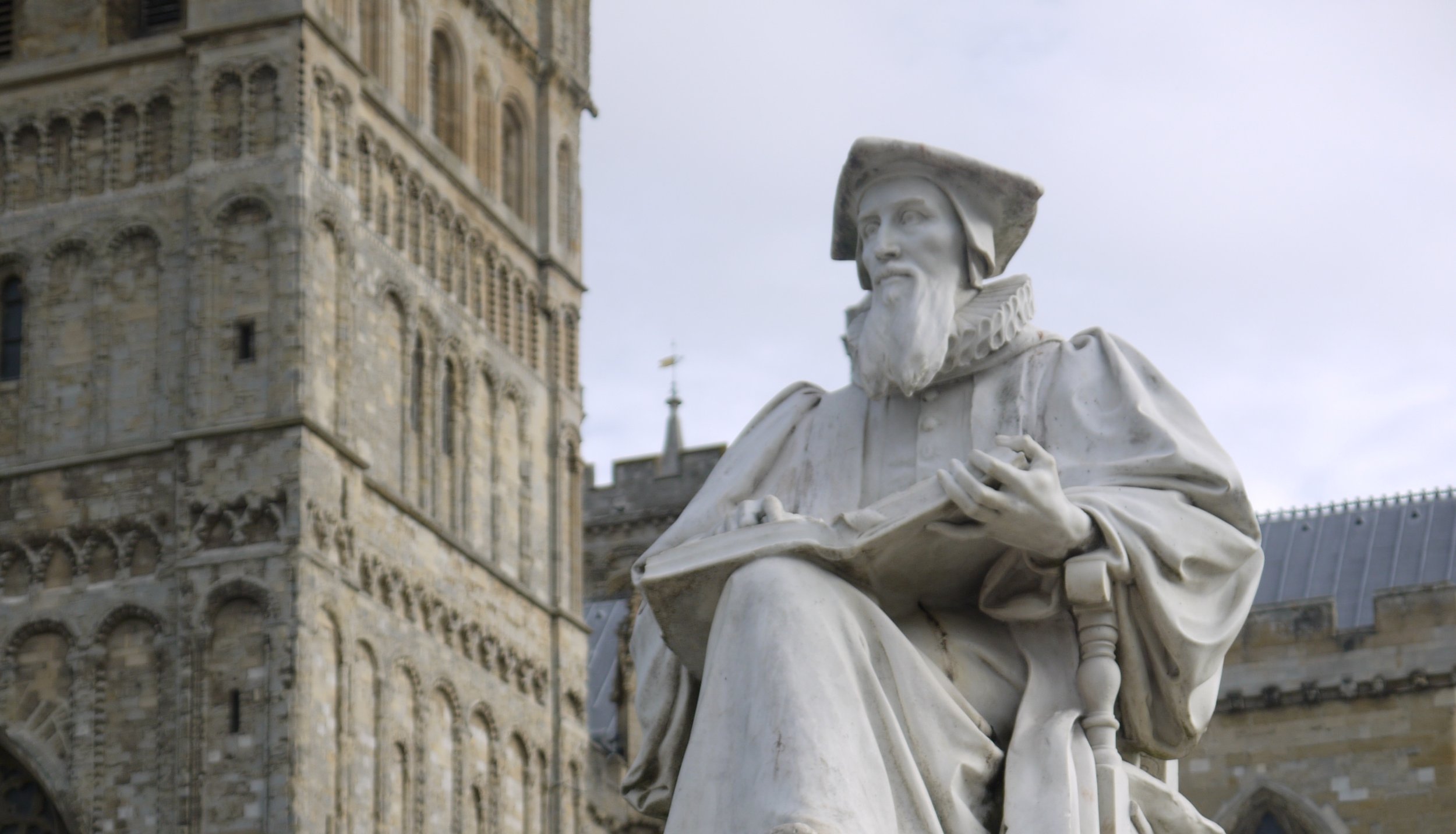
BEING ANGLICAN
What does it mean to be Anglican?
On this page, you’ll find resources which may help to better understand the Anglican tradition.
If you’re new to Anglicanism, we recommend this video by The Anglican Relief and Development Fund. If you’re looking for a concise summary of Anglican history, or answers to commonly asked questions, continue scrolling to learn more.

A (VERY) SHORT HISTORY
In the first centuries after Jesus’ resurrection, Christian missionaries brought the gospel to the British Isles. In time, the result of their evangelism was a fully orthodox and uniquely local form of Christianity.
During the early middle ages, this English church came under the authority of the Church of Rome, but became independent again during the Reformation. At the Reformation, it embraced the Protestant doctrines like justification by grace through faith alone and the ultimate authority of the Scriptures. It did this while maintaining its ancient practices and unbroken apostolic connection. This gave the Anglican Church its unique character of being fully protestant and truly catholic.
As the British empire spread around the world, so did this Anglican Church. When that empire began to fall back, the evangelical mission of the various local, Anglican churches carried on, sharing the gospel with new generations of Anglican Christians all over the world.
Today, with nearly 85 million members in 165 countries, Anglicanism is the third largest form of Christianity in the world. We speak many languages, have many skin colors, and belong to many cultures. Together, we make up one body whose aim is to follow the Lord Jesus Christ through the living tradition we’ve received from those who came before us.
At All Souls Church, our mission is to be a local Anglican parish for Lexington, SC that witnesses to the gospel and makes disciples of all people.

ANGLICAN FAQs
Anglicanism is big, beautiful, and sometimes a little confusing. Below, you’ll find answers to some of the most common questions we hear at All Souls.
Keep in mind that these are bite-sized answers to really big questions. If you want to dive deeper into these questions and more, please check out our Videos and Articles page, our What We Believe page, or reach out to us using our Contact page—we would love to hear where you’re coming from and work through any questions you may have.
-
Yes, we do baptize the infants of Christian parents. It has been the common practice of most Christians throughout history to do so. This is based on the biblical understanding of God’s covenantal grace and the sacraments as promises which God gives to us, not actions we perform on God or on each other.
There are a variety of beliefs about baptism represented in the All Souls community. While we definitely encourage families to give the gift of baptism to their children, we do not require it for membership. We only ask that members recognize this as the standard practice for Anglicans and respect it.
-
In some ways, the best answer is “both.” The Anglican Church’s history extends all the way back to the first few centuries of Christianity itself. In this way, we have a long “catholic” heritage, holding to the full faith delivered to the apostles and handed down for centuries.
The Anglican church embraced the Protestant Reformation by re-emphasizing biblical doctrines like justification by grace alone through faith alone and the ultimate authority of Scripture. Though this made Anglicanism a Protestant tradition, the most important features of our catholic heritage have been preserved as well, such as a historic liturgy, the episcopacy (see more below), and the centrality of both Word and Sacrament in worship.
-
Holy Communion (or, the “Lord’s Supper” or “Holy Eucharist”) is a service that holds together the preaching of the word of God and the sacrament of Communion. This sacrament was given by Jesus himself to be the main way in which Christians embrace Christ’s sacrifice, become a body together, and receive spiritual nourishment.
The New Testament makes frequent mention of Christians gathering on the Lord’s Day (Sunday) to break bread, and it has been the widespread tradition of the church to practice Holy Communion on all Sundays and other feast days. Out of joyful obedience to Jesus, the Scriptures, and the apostolic faith, we hold Holy Communion services every Sunday under normal circumstances. -
People dress differently for the most important events in life. It’s why a Marine wears dress blues, a bride wears a white dress, and a judge wears a black gown. These special clothes, or “vestments,” bring meaning, weight, and beauty to the most important moments of our lives. They also remind us that these events are about more than just the people wearing the vestments—they are part of something bigger than themselves.
Anglicans believe that when we worship God together, we are joining with the angels and saints in heaven who worship around the throne all the time—a very important event! When our ministers and assistants lead us in that heavenly worship, they wear historic robes that are appropriate for the service and the time of year. By doing this, they remove their own personality from the situation, and that helps us focus on the most important person in the room: God himself.
-
Bishops, priests, and deacons are the three orders of ministry that developed out of the New Testament church and continue to this day.
Bishops, like the Apostles themselves, are the chief pastors of a region. Each local church within a region is served by priests (a shorter form of the word “presbyters”) and deacons. Priests are ministers ordained to preach the Word and administer the Sacraments. Deacons are ordained to assist the priests, particularly in the work of proclaiming the gospel and serving the physical needs of the congregation. All ordained ministers in the Anglican church are part of a long line of ordination that can be traced back to the apostles.
This form of church governance, called the episcopacy, ensures that church leaders are carefully prepared, examined, and held accountable in their respective ministry roles.
-
We are a parish of the Anglican Church in North America and we use the prayerbook of our province—The Book of Common Prayer (2019).
Along with all churches in the Anglican Communion, the ACNA holds the 1662 version of the prayerbook as the standard for doctrine and discipline, and with the books that preceded it, sees it as the standard for Anglican worship. The 2019 Book of Common Prayer is faithful to this rich heritage and we seek to use it in the ways that are most faithful to the 1662 standard.
-
No, Anglicans do not pray to saints. Instead, we recognize that those saints who have gone before us are present with God, and we join with them and the angels in prayer together as the communion of saints.
Anglicans do give prayers of thanksgiving for the saints who have gone before us, often by name. Our prayer book contains a commemorations calendar, which appoints days of the year for remembering various saints throughout history. We also take time to name in thanksgiving our own family and friends who have died in the faith and gone to be with the Lord, asking the Lord make us faithful in following their example.
For more information on what we as Anglicans believe, head to our What We Believe page.

